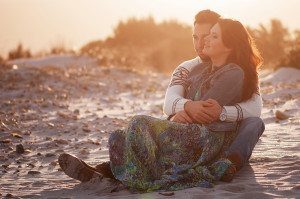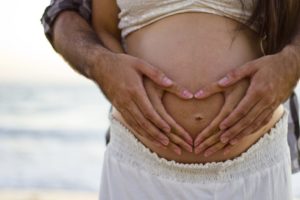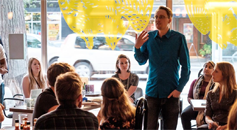You can manage your fertility from menses to menopause without using hormones.New Zealand is known for its clean green philosophies and certainly more and more families are embracing natural products and solutions. But did you know that your fertility can be managed naturally too?
Natural Fertility for contraception has been used in one form or another for many hundreds of years and is the most widely used form of family planning throughout the world. The modern, medically endorsed and scientifically based Sympto Thermal Method (or STM) is taught to many Kiwi women (and their partners) and allows women to have a non-invasive, natural choice which doesn’t require pill taking whilst still remaining highly effective (at least 98% effective – the same stats as the mini-pill)
On the other hand; one in five couples in NZ have issues in achieving pregnancy and utilising Natural Fertility can be an effective way to maximise chances of conception each month whilst also quickly revealing potential fertility problems inexpensively and at the same time learning about what your body does naturally throughout your unique cycle.
What Is It?
STM Natural Fertility is the researched and scientific practice of observing your body, understanding its changes and knowing when you are fertile and when you are not. Approximately 50 % of women use this knowledge to increase their chances of conception and 50% use it as a natural form of contraception. It can be used by women at any stage of their reproductive life – pre or post children, post contraceptive pill or Depo Provera or peri-menopausal women and it does not depend on a regular cycle. Breastfeeding women can also use either a method called LAM or a breastfeeding chart.
Known as the Sympto-Thermal Method or STM; it is not to be mistaken for the Rhythm or Billings Method. It is a modern technique, medically endorsed and scientifically proven to be at least 98% effective when taught by a qualified Educator (as ‘safe’ as the mini-pill). Recent research in Germany in 2007 showed an effectiveness of 99.4%.
The method involves carefully recording:
- Cervical mucus symptoms
- Basal body temperature
- Changes in the cervix
Its effectiveness depends on:
- The cooperation of both partners
- Supervision in the early stages
- Instruction by a trained educator
- Ongoing motivation
When used for Contraception:
NFNZ Educators see couples regularly who have decided to learn STM as their means of avoiding pregnancy/contraception. ‘Some clients are unable to take the Pill for varying reasons and others want to be more in control of their health and environment: they are eating healthily and sometimes organically, trying to keep fit and are careful about any medications they take. They care about the environment and are amongst a growing number of clients who have a genuine interest about what is happening to our world. They understand that what they do now can have an impact on their future. They are keen to take responsibility for what they are doing to themselves, the environment and for the health and wellbeing of their (future) children’.

More and more Mothers and Fathers are making informed and educated choices about their parenting; choosing to follow a more ‘natural’ approach and witnessing their successes leads them to reflect and decide to do the same for themselves. Many of these Parents choose STM to space their families or once they have completed their families.
A growing number of partners want to take an active role in sharing responsibility for contraception and are supportive of their partners not taking pills, potions or going through invasive techniques.
Other clients can’t tolerate the Contraceptive Pill or have been told it is inadvisable to take and do not wish to use condoms or a diaphragm long term so they make the choice to learn STM.
Learning Natural Fertility (STM) assists those who want to:
- avoid pregnancy in a manner that fits within a personal desire for a natural lifestyle
- use a natural form of contraception due to their concern about the long-term effects of hormonal contraception
- contraindications to other methods of contraception
- medical advice to avoid other forms of contraception
- a personal disinclination to use other methods
- ensure optimum quality and quantity of breastmilk while breastfeeding **
- women near menopause who are entering into a sexual relationship after a time of celibacy
- contraception during the peri menopausal stage
Contraception the supports Breastfeeding
If the mother is fully breastfeeding, has had no bleeding or spotting after the baby is 8 weeks’ old and the baby is less than 6 months’ old then the LAM (Lactation Amenorrheic Method) contraception method (approved by the World Health Organisation) can be taught. Mothers are taught this in an individual consultation and the Educator keeps in contact monthly to ensure that circumstances have not changed. It is very important that the method is taught by knowledgeable and experienced Educators and that mothers recognise the signs of returning fertility. NFNZ accredited Educators have qualified from the only Accredited training programme in New Zealand for teaching the LAM method of contraception. Where the specific LAM criteria cannot be met, an alternative natural method of contraception is taught – Breastfeeding Charting.)
It is important to realise that STM is not for everyone and clients need to be committed. However, for many the method brings them closer together. Natural Fertility (STM) for contraceptive needs assists couples who want to, understand their fertility as a couple, share responsibility, communicate, make informed decisions, feel confident and want a method that is safe, reliable, and drug-free. It is a modern, scientifically proven method.
As one couple says “Knowing that you are in charge and making your own decisions is so worth it…it makes up for the very little time it takes every morning to take my temperature & being aware of my other fertility signs has actually been enlightening and empowering. Jacob takes responsibility for filling in the chart; then Jacob & I can see when I am fertile. If it is a fertile time it then allows us to choose whether to have sex using a barrier (diaphragm or condom) or abstain. It is our choice. It also helps me to know my own body better and indicates when I am likely to be more physically and emotionally sensitive. If I know that I am working up to PMS then I know to be kinder to myself and also that I may need to count to ten sometimes before responding to comments, especially from Jacob!”
Whether it be for Contraception or Conception
it is recommended to learn STM with the assistance of a qualified Educator (in fact, the only Provider recommended to provide education for LAM : Contraception whilst Breastfeeding, is an Educator accredited to ‘Natural Fertility New Zealand’) rather than just trying to learn from the internet or an app. This generally takes three appointments over 2-3 months which can be at a local clinic, at your home or via SKYPE. The cost is generally between $250 – $300 inclusive of all three appointments & a year’s follow up. A new skill for life!




